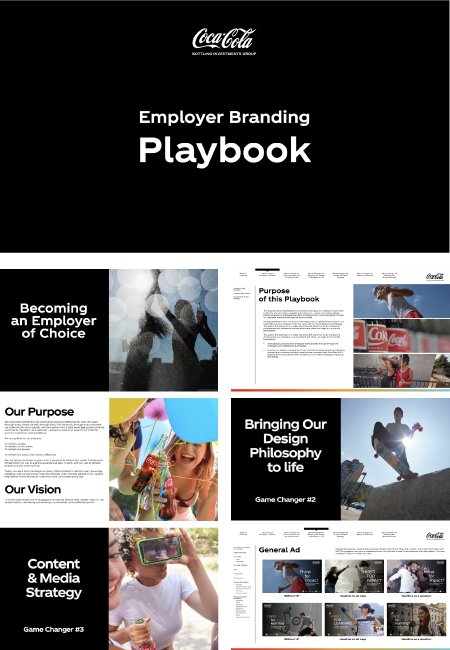What are organizational values and why are they important?
Organizational Values
From setting the tone for a positive workplace culture to providing a code of conduct for employees, a solid set of company values can do a lot of heavy lifting. Understand what effective values look like and how they work.
Company values are a set of core beliefs held by an organization. They might involve principles that govern the business, its philosophy, or how it expects the people who work for it to act. Values are overarching - they’re not about a single situation but act as a guide to how a company should approach everything it does and its interactions. As one description puts it: “organizational values function as guides to what is seen as good and important in the organization”.
Values can help define an organization’s personality and help it stand out from the crowd. They can make a statement about where a company stands and what it believes in. They can give people focus and a greater sense of purpose and engagement, reinforcing a company’s broader goals and feeding into everyday decisions and work. And crucially, values act as one of the building blocks of organizational culture, giving a consistent reference point, even in times of change.
Of course, the best values do all this, providing a framework for success while reinforcing company-wide ethics.
What’s the difference between an organization’s values and its mission statement?
Values and mission statements work together to form the bedrock of a company’s culture. A mission statement tells you where a company is going. Its values tell you how it will act along the way.
Here are some of the things a clearly defined set of values can do.
1. Attract talent
Company values can make all the difference when potential employees weigh up their next career move. Salaries and other benefits all have a part to play but job seekers want to know that an organization’s principles match their own.
Research shows that 71% of professionals would take a pay cut to work in a business that shares their values. Meanwhile, 39% of professionals would leave their current job if their employer asked them to do something they deemed morally wrong.
3. Improve time management
2. Set you apart from competitors
In a crowded market, consumers look beyond products, services and price tags. According to Forrester, 52% of all US adults will consider brand values before making an online purchase. That figure rises to nearly seven in ten Millennial consumers. The market research company also found that older generations are increasingly sensitive to company values.
Principles have a more significant impact on profits than some business owners might think. Seventy-one percent of Millennials will choose to pay more for products if they know some of the proceeds will go to charity. Small efforts to help others can make a big difference to your bottom line.
3. Improve time management
3. Create a secure work environment
A set of considered values will give employees a code of conduct for work. They provide a guide for behavior in professional, social, physical and virtual interactions that everyone can understand and feel comfortable with. Done well, this helps create a strong sense of security. Making fairness your number one priority, for instance, will ensure that your organization can identify and deal with toxic behaviors.
Managers will know what they can expect from team members and vice-versa—no unpleasant surprises.
4. Enhance communications
Underpinned by a robust set of values, people can interact with customers and colleagues in a way that reflects an organization’s positive outlook. This not only improves a company’s reputation but can lead to more productive team collaboration..
5. Improve employee engagement
Having people buy into your organizational values can boost employee engagement. By doing so, people feel more connected to your organization and each other. This enthusiasm can spill over into everyday tasks, inspiring teams to make the ‘discretionary effort’ that makes such a massive difference to performance.
A Gallup study found that engaged teams have lower turnover, 21% greater profitability, and 17% higher productivity than disengaged teams. And the benefits don’t end there, as highly engaged teams report a 41% reduction in absenteeism and achieve 59% less staff turnover.
Examples of company values
You’ll sometimes see company values reduced to little more than single words: fairness, honesty, inclusivity. But this isn’t enough. Your value statement should set out what your values mean to your business and indicate how you’ll put them into practice - they can’t be just empty slogans.
Take a look at how some companies are doing it:
- Move fast. Be bold. Be Yourself - Facebook
- We want to work with suppliers, agents, distributors and other business partners who have values similar to ours and uphold the same standards as we do - Unilever
- Our values shape the culture of our organization and define the character of our company - Accenture
- Leading with progressive values across our business - Ben & Jerry’s
- You see things a little differently. So do we. - IKEA




How do you develop organizational values? 5 things to consider
Here are a few things to think about when defining yours.
1. What’s the purpose of your company?
Every solid set of values will align with the purpose of your business. People may know a manufacturer for producing goods to the highest standards, while a logistics business might pride themselves on their speed. It’s essential that your philosophy makes this clear.
Purpose-based values have human benefits too. According to a study on the role of purpose at work, 73% of purpose-orientated employees are satisfied with their jobs.1
2. What behaviors do you want to encourage?
Picture your values as a moral compass for your employees. A shining beacon of how staff should conduct themselves at all times. How do you want people to treat each other and your customers? How will your organization stand for diversity and inclusion?
3. How will your values work with the structure of your business?
Some organizations have a flat structure with few layers of management and a short chain of command. The values created for these businesses might look different from those made for more traditional companies with a more complex hierarchy. A business with a flat structure might focus on accountability, where a more conventional company might put more emphasis on managers nurturing their team members.
Habits and practices in a business often vary by country, region and even department. When communicating your guiding principles, you should acknowledge these differences and clarify where your business stands on them. Everyone needs to be on board with your philosophies for them to work.
4. Do your values encourage remote and hybrid working?
Your current values might not be helpful for employees working remotely and might need an update. Picture how your principles might play out across various scenarios, so all your employees are supported in their work, no matter what their location.
5. How do you want the world to see you?
You might be a customer-centric or relationship-building expert. Either way, your values should give the right impression. But remember, it isn’t about tidying up your public image: your employees have to live and work by these standards too.
Once you have an idea of your starting points, you need to get a variety of people involved in creating your values.
Step 1: Get a team together
Organizational values should consider everyone in the business. Try taking a cross-section of your workforce, and to keep sessions balanced and focused, elect a leader. Someone from HR would work well..
Step 2: Brainstorm
Ask people how they expect to be treated by their co-workers and managers, both when on-site and when working remotely. Discuss what your employees expect from their employers too. This is the perfect opportunity to move on to the organization’s expectations of its teams.
Step 3: Write your new values down
It’s time to put your ideas down. There’s no ideal number of values for a company, but they need to be simple to understand and easy to remember. Some businesses choose to use acronyms to keep philosophies front of mind.
Step 4: Get sign off from the top
Once you’ve finalized everything with your specially assembled team, it’s time to present your work to the stakeholders who’ll sign them off. Be prepared to explain your thinking and tweak your values according to suggestions. You’ll need sign-off from all the major stakeholders before you share your values with the rest of the team.
How do you communicate your organizational values?
Even the best values won’t get traction if you don’t communicate them effectively. Sharing your corporate philosophy with your team involves much more than delivering a presentation or sending a group email. Communicating your values is a continual process. Here are 6 ways to get it off the ground.
1. Value statement
This should be the first step when sharing your values. Put everything down in simple, easy-to-read language and remember, less is more. Post your value statement in the workplace kitchen, in the warehouse, in the stores, on your intranet, in your group chat, and on your customer-facing website. Everyone needs to be familiar with your value statement, whether they’re working on-site, remotely or on the front line.
2. Introductory meeting
Present your values in a company-wide meeting. You can use your communication tools to host the meeting, so it’s accessible to everyone, not just those who can physically attend.
3. Performance reviews
Linking your organizational values to pay rises and promotions will encourage people to buy into them. Ask team members to create value-orientated objectives. If employees make measurable goals that align with your values, they’ll be front of mind throughout the year.
4. Linking to your communication strategy
Considerate use of language can help promote your philosophy. Before anyone presses ‘send’ on an email or ‘publish’ on a social media post, they should consider whether their copy aligns with your values.
5. Promote your values in interviews
77% of adults consider a company’s culture before applying for a job. So you can assume that potential employees weigh up how they might fit into your team during the interview process. By talking through your philosophy at the earliest opportunity, everyone can be confident of a good fit for your organization.
6. Informal catch-ups
Discussing values doesn’t have to be a formal process. Managers might choose to talk about principles during casual catch-ups. Co-workers can share their ideas when creating values-based objectives. If everyone is happy to offer their examples to the group, progress reviews could become more meaningful.
This article first appeared in Workplace Blog:
Get the "Building Connected Organizations: Why Work Isn't Working" E-book


TalentView is a leader in employer branding strategy, design and technology. With teams across the ASEAN region, TalentView’s professional solutions help to create memorable experiences across the talent lifecycle to attract, engage and retain talent. Working directly with business leaders in Fortune 1000 companies, TalentView is well-positioned to provide talent insights and is an accredited partner of key global players including Workplace from Facebook, Talegent, Indeed, Hootsuite, Digimind and PhoenixATS.
Copyright © TalentView Asia, 2021 | Privacy Policy
















